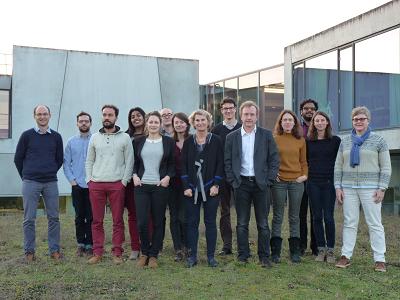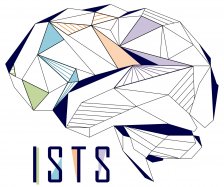Dear Visitor, we are pleased to welcome you to the ISTS Laboratory :)
Imagery and Therapeutic Strategy in Schizophrenia (ISTS, EA 7466) laboratory, directed by Professor Sonia Dollfus, constituted of psychiatrists, neuropsychologist, engineer and neuroscientists, investigates neural networks of cognitive deficits (particularly language and social cognition) in patients with schizophrenia in using multimodal neuroimaging (anatomical and functional MRIs, Diffusion Tensor Imaging, Magnetic Resonance Spectroscopy, EEG and P50) thanks to the Imaging Platform (GIP Cyceron Center, Caen).

ISTS also uses multimodal imaging to study the impact of various therapeutic strategies (magnetic stimulation guided by neuronavigation, physical activity) on the human brain, in healthy subjects and patients with mental disorders (schizophrenia in particular); white matter changes (Diffusion Tensor Imaging), glutamate and N‐Acetyl aspartate (Magnetic Resonance Spectroscopy), default networks (functional Magnetic Resonance Imaging) are particularly investigated in patients with negative symptoms or social cognition deficits.
Research Topics:
Neural networks of cognitive deficits in schizophrenia
- Pathophysiological Topic
- Study on anatomical and functional neural networks of auditory hallucinations and hemispheric lateralization for language.
- Study on neural networks of theory of mind.
- Study on neural networks of default networks and self-consciousness.
- Therapeutic Topic
- Effect of repetitive Transcranial Magnetic Stimulation (rTMS) guided by neuronavigation and by anatomic and functional Magnetic Resonance Imaging to treat:
- Auditory hallucinations,
- Cognitive deficits,
- Negative symptoms.
- Effect of rTMS on the brain by investigating:
- White matter changes (Diffusion Tensor Imaging),
- Glutamate and N‐Acetylaspartate (Magnetic Resonance Spectroscopy),
- Default networks (functionnal Magnetic Resonance Imaging).
- Effect of Adapted Physical Activity on cerebral plasticity and cognitive deficits.
- Effect of repetitive Transcranial Magnetic Stimulation (rTMS) guided by neuronavigation and by anatomic and functional Magnetic Resonance Imaging to treat:
